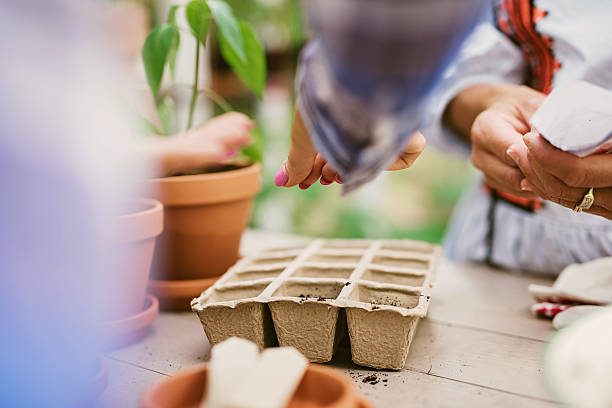Learn to Grow Your Own Seeds
Did you know that it’s easier to grow your own seeds rather than buy them? It requires less work and knowledge, but more importantly, the best part is that you can save money! All you need to do is purchase a little nursery tray or pot that has drainage holes in the bottom of it. Then water the tray for about 3 days straight with tepid water. Then place your seeds on top of the tray and cover them with soil.
How to Grow Vegetables
Vegetables can be grown from seeds and they don’t require a lot of care. Almost every kind of seed can grow into a vegetable, although some take longer to mature or need different growing conditions. Seeds should be planted in garden soil with adequate drainage and the temperature should never be below 41 degrees F. They should also be planted directly into the ground rather than in pots because it allows for better aeration and drainage.
How to Grow Flowers
First, you need to find a sunny spot for your flowers. They need 8 hours of direct sunlight each day and they also need good drainage and plenty of water. Next, you’ll need some containers so that your flowers can grow. You can use anything from wood planters to recycled food jars to large clay pots. The best time to start growing flowers from seeds is from mid-March to mid-April. You can get a jump on the gardening season by buying a plant and taking care of it indoors over the winter months. As long as you have a window that gets a lot of natural light, you should be golden!
Tips for Growing Seeds
There are many ways to grow your own seeds. There is a large variety of vegetables, herbs, flowers, and fruits that can be easily grown from seed. Many trees can also be successfully cloned from seeds. You can start your seeds indoors in a small container and plant them outdoors once they have sprouted. A number of factors must be taken into account when it comes to growing your own seeds. Here are some tips that will help you in the process.
1) Seed selection is key for success. Different plants have different needs, so you should find out what type of seeds are best suited to your garden before starting the planting process.
2) You should start with a small area because each plant takes up a lot of space and space is limited in most gardens.
3) Plant spacing should also be considered – do not overcrowd your garden because these can cause problems such as disease and blossom drop problems. Space the plants at least one meter apart from each other and keep them about three meters away from other plants or objects that may obstruct

Using Compost
Compost is a natural way to get rid of waste and make a garden flourish. You can use compost to improve your soil and plant seeds. To make the best compost, you need to start with fresh materials that decompose quickly. Use brown rice, coffee grounds, coarsely ground corn cobs, or seedling starter mix for your compost bin. Beware of Contamination. Contaminated soil means that your seeds are unable to germinate or keep their health. To avoid contamination , you should buy your seeds from a reputable company that uses local suppliers. You should also keep your compost in conditions that are free of disease, mold and insects.
Different Types of Compost to Use
Composting is a great way to recycle plant materials and keep your garden healthy. It can also be a beginner’s first gardening endeavor. The key to successful composting is using the right type of compost for your needs. There are four types of composting that you can use depending on what you want to do with the compost. Composting is the process of breaking down organic material in order to supply organic matter back into the soil. Compost is considered essential for plant growth, so an understanding of how composting takes place is helpful when choosing a composting technique. There are three main types of composting to choose from: aerobic, anaerobic, and mixed.
Conclusion
You can grow your own seeds and save a lot of money by doing so. This is a great and inexpensive hobby for those who enjoy gardening and want to be able to grow their own food.
